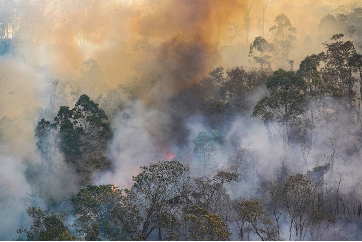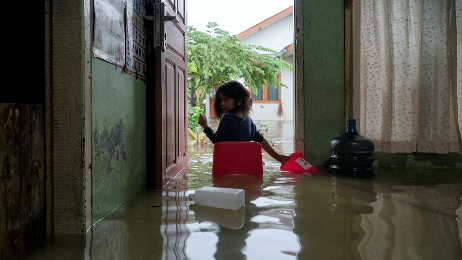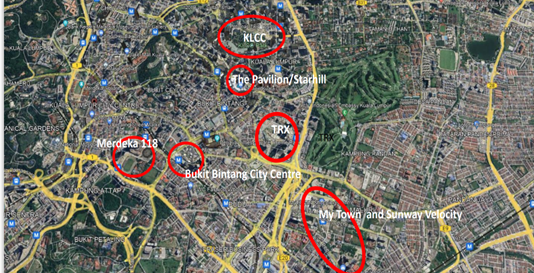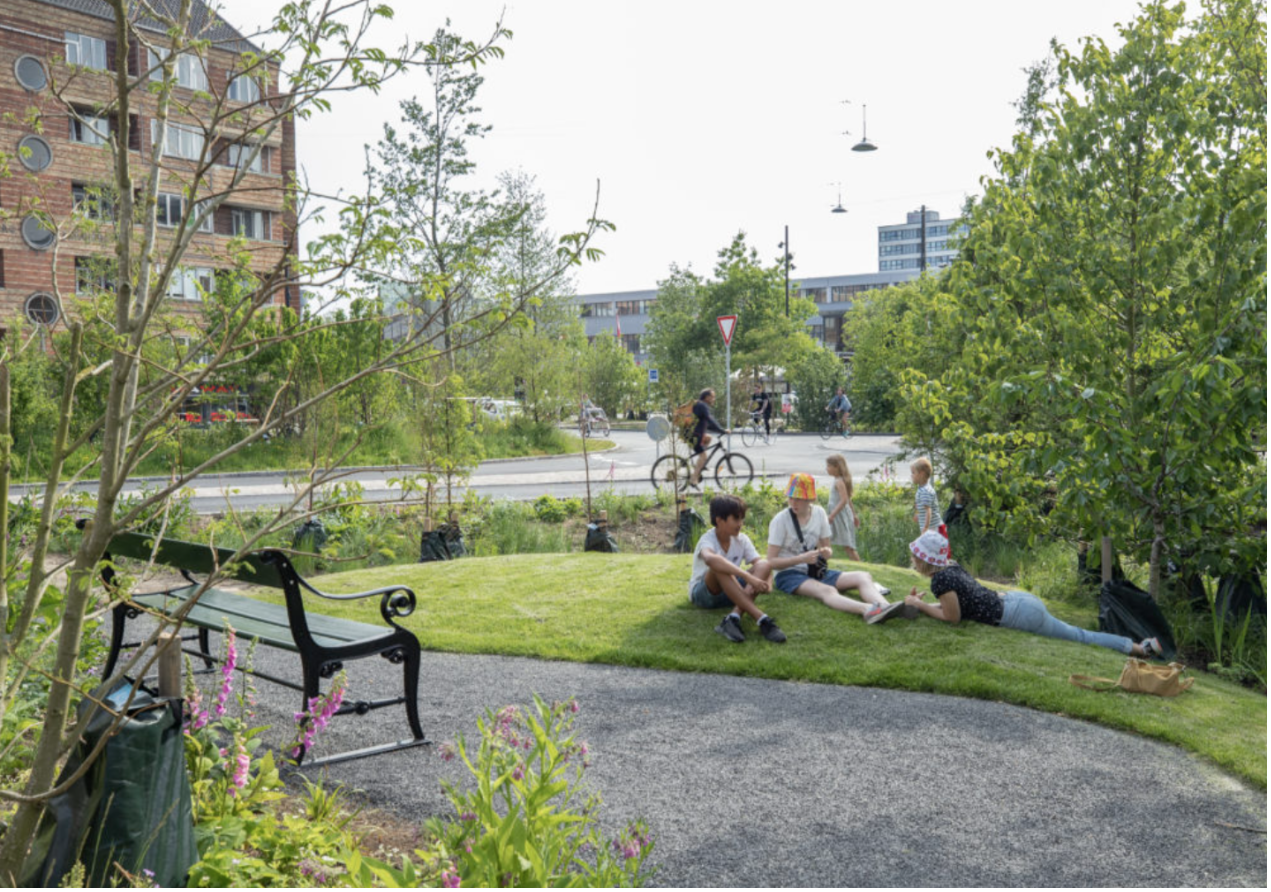We have been facing the full scope of environmental challenges. From significant climate change impacts to staggering loss of biodiversity to extreme pollution, Earth is in peril, and it’s time to take action. We have begun the long search for solutions.
How did we get to this point? Why have we allowed ourselves to enter a warlike relationship with the natural world? After all, humans are an amazing species, self-aware, highly intelligent, empathetic, and remarkably adaptable. And therein lies the crux of the problem. Our ability to physically adapt to an ecological condition also comes with the ability to mentally adapt and convince ourselves that everything will be “OK” – that someone else will solve these problems or that the problems are not really that threatening.
Humanity will face the following challenges within the next ten years: extreme weather events, natural disasters, and the failure of climate change mitigation. The slow movement towards addressing climate change has left us in the unenviable position of reacting to the effects of climate change rather than proactively seeking comprehensive solutions.
So, we might be wondering: Why do humans continue to destroy their own environment?
The Business People: “We want to have more profit”
Money is often said to be the “root of all evil.” The term “profit” expresses the accumulation of wealth, which brings financial security and enables us to buy what most social structures define as success or the “good life.” It’s not money, wealth, or profit that is the “root of evil”; it is being exclusively self-interested and short-sighted, thinking only of financial profit regardless of the cost or harm to others and the environment.
Today, we see the legacy of self-interest gone astray: air pollution, water scarcity, biodiversity loss, ocean plastics and acidification, and many more. Despite the clear and present threat to the quality of life for present and future generations, the environment remains under attack: High-slope development cutting off the water-retaining function of the soil, causing landslides and loss of lives; tar sands mining in Alberta destroys millions of acres of pristine land, leaching toxic chemicals into wetlands; Amazon rainforests are burned daily, emitting millions of tons of carbon dioxide to make space for methane-emitting cattle ranches. The widespread use of factory farming leads to dangerous levels of phosphorus and nitrogen in the soil.

Source: anafranscisconi/elements.envato.com
For thousands of years, societies have been focused on financial profit as the indicator of success. We associate this activity with “rational thinking” or the “logical” expression of human purpose. For many people, financial and material growth is seen as the measure of human progress.
Pollution and global warming are externalities to the widespread use of fossil fuels, beef farming (cows emitting methane), and other industries. Profit-driven thinking seeks to externalise these problems, leaving governments responsible for cleaning up the problems. This is a powerful way to maximise profits but a sure pathway to environmental destruction.
General Citizens: “We have no empathy”
Empathy, like self-interest, is an inherent characteristic of humans. It draws from the ethical core of each person to motivate each of us towards the long-term shared benefits of a healthy environment and equitable society.
Altruism (or unselfishness), ethics, and “goodness” are the most apparent manifestations of empathy. Unlike self-interest, the benefits of empathy are not always measurable or physically seen. If a person is altruistic, they may derive happiness and satisfaction by completing a good deed.
Projecting cognitive empathy across space is a critical aspect of empathy in sustainability. Imagine the faraway farmer dealing with drought or the faraway fishermen catching fish with plastic in their bellies. Citizens who lack empathy across space do not see the world as an interconnected system and connect to the people, animals, and ecosystems suffering the damage or consequences of bad decisions.
Empathy across time is the most abstract but powerful expression of empathic responses. Concern for humans yet to be born requires a great leap in cognitive empathy. It is abstract. These unborn future generations are not necessarily part of your family, country, or religion, and yet, the expectation of sustainability is to have empathy for these people. People with no empathy across time do not see that each choice they make today will affect people 150 years from now.
People also lack affective empathy for nature and across animal species. They can ignore the millions of tonnes of plastic entering the ocean each year and simply forget the polar bear struggling on the floating ice in the warming Arctic wilderness.

Source: photocreo/elements.envato.com
To further understand why our Earth is in peril is to ask why isn’t everyone concerned about sustainability. The answer depends on where they sit on the income spectrum.
The Poor: “We just can’t worry about it”
No one should be surprised if individuals or families struggling to make ends meet do not spend much time or money helping protect ecological or social systems. Political oppression exacerbates this. Remember Maslow’s hierarchy of needs. This theory tells us that people work to satisfy their seed needs first – like food, shelter, clothing, and so on. Then, they focus on needs related to personal health and safety.
Next are needs related to a sense of belonging or connection to others, followed by self-esteem, status, and recognition. Self-actualisation needs at the top. Worrying about environmental protection, for example, is a luxury that individuals cannot necessarily afford until they are at a higher level in the hierarchy. Some researchers have argued that concern for the welfare of humanity—sustainability, say—comes as part of self-actualisation.
The Wealthy: “We just don’t need to worry about it”
Evidence shows that the wealthiest members of society are least likely to be negatively affected by ecological or social system damage. Thus, it is argued that sustainability concerns don’t weigh heavily on those with access to the resources needed to insulate themselves from potential harm.
Recent news stories have told how Brazil’s economic recession has caused an escalation in the number of homeless people among the poor in Sao Paulo; in contrast, wealthy residents are merely reducing the rate at which they use helicopters to travel around the city.
A recent study in the United States showed that flooding associated with severe storm events, which are expected to increase in number and severity with climate change, disproportionately affect the urban poor. Homes, schools, and medical centres in low-income neighbourhoods are more likely to be damaged and less likely to be prioritised for repairs and reconstruction. Meanwhile, the poor are less likely to have needed insurance and more likely to be unemployed when affected businesses are closed.

Source: irfanmnur/elements.envato.com
Together, these two phenomena seem contradictory. Those on the lower end of the income spectrum cannot worry about sustainability, and those on the upper end don’t need to. These are generalisations, of course. Nevertheless, the first reminds us to be careful about judging others’ decisions; the second reminds us to be sensitive to the responsibilities that should come with good fortune. Sustainability does demand a little ethics, after all.
 |
Assoc. Prof. Dr Zalina Shari
Profesor Madya
Fakulti Rekabentuk dan Senibina,
Universiti Putra Malaysia
|
Tarikh Input: 19/10/2023 | Kemaskini: 19/10/2023 | uswahhasanah
PERKONGSIAN MEDIA
































